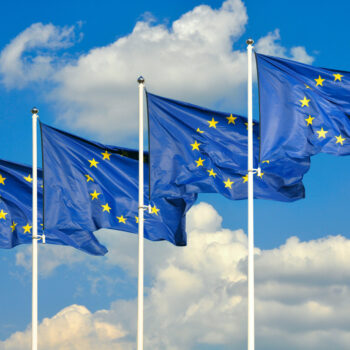Brexit has dominated the German media space ever since news of the referendum outcome broke. Reactions have ranged from dismay to disbelief and defiance, exposing the shock this has caused in the country. Political elites across the board were quick to deplore the decision. But regret was followed immediately by appeals to start the process as swiftly as possible to avoid a prolonged period of instability. This reflects concerns about the future of the European political project and impacts on the EU’s position in the global market.
Chancellor Merkel remained adamant, though, that the situation required a calm approach. The EU had to avoid strong-arming the UK into activating Article 50 – ‘the process should not take forever, but also does not need to be rushed’. The UK required time to think, she stated, and other member states had no leverage to speed up the process.
Germany sees Brexit largely as a result of austerity in the wake of the financial crisis, inequality and anti-intellectualism, but also of migration (not refugees!). The main issues identified as troubling the daily life of the British people are rising house prices, stagnant wages, the decreasing availability and quality of public health services and the lack of school spots for their children. German public opinion therefore deeply begrudges British Conservatives for opportunistically stoking anti-Brussels sentiments among the British public when most of the problems were homemade.
At the same time, however, public discourse in Germany after the referendum is also about the complacency of the EU itself that has given little to no attention to the losers of globalisation, to marginalised groups, and to those afraid that their social and economic status might be at risk. Germany’s Economics Minister and Vice-Chancellor Sigmar Gabriel from the Social Democrats made it clear how urgent it was to restore confidence in the EU by making it more socially just and by finally becoming real about tackling issues such as the high youth unemployment in Southern Europe: More solidarity and a feeling of mutual responsibility needs to be restored in the EU. For instance, the EU has had to become more flexible with regard to indebted members states and allow them more room for manoeuvre in relation to growth, employment and education policies. Similar calls came from the opposition Greens and the Left Party. This mirrors debates in Southern Europe where the EU is blamed for the social fallout from austerity programmes, increasing inequality, and youth unemployment.
Merkel, on the other hand, called for calm and emphasised that she did not want to spark ‘a war of roses’ as the UK and the EU share economic and security interests nonetheless and will remain close partners. In addition, they are still fellow members in organisations such as NATO, the G7, and the G20 and therefore needed to maintain good relations for the future. Merkel has also explicitly stated that she was not worried about a potential collapse of the EU through further calls for leaving the Union in other countries.
And it is true: Little will change on the European continent due to the decision of the British people, including when it comes to the climate and energy agenda. There will be some immediate obstacles to overcome, but the EU will continue to implement its climate and energy targets for 2030 even though Britain will be missed sorely as a force for climate ambition. In Germany as well, the fight over the level of climate ambition, the future of coal in the electricity mix, and the 2050 decarbonisation roadmap will keep increasing in intensity as incumbents have been coming under mounting pressure of the past months and years.
And of course, Germany and most other remaining member states will also continue to struggle with increasing populism and nationalism. Political leaders will have to start tackling people’s alienation from the political system and its elites who do not provide answers to their fears and frustrations. The right-wing Alternative for Germany party was quick to interpret Brexit as a signal for a radical reform of the EU back to a mere economic union. Member states from Central and Eastern Europe are equally calling for the EU to give sovereignty back to the national level.
But rolling back integration in the face of mounting common challenges would be counterproductive. We need more of a reformed Europe rather than less. We need a very different Europe with increased support for regional and local initiatives. Not a Europe of bureaucrats and red tape, but a Europe that delivers social justice, opportunities for its people, and sustainable growth in the key sectors of a future low-carbon economy. If Europe can move away from ever more centralised decision-making in Brussels to re-embody the spirit of integration which led to its inception, it can once again become an exciting project to be part of.


